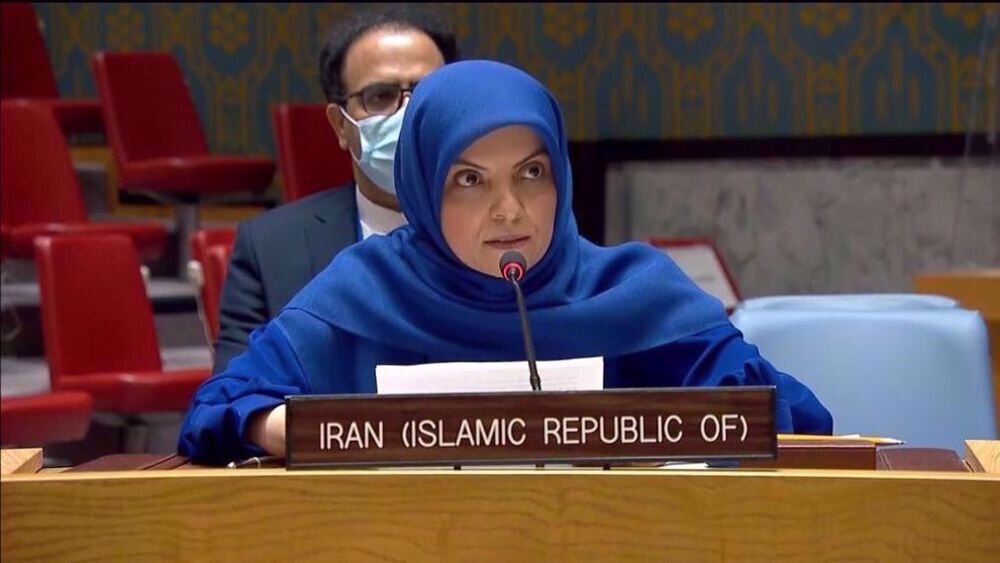Iran reiterates commitment to preventing war crime, ethnic cleansing

TEHRAN – Zahra Ershadi, Deputy Permanent Representative of Iran to the United Nations, has underlined Tehran’s unwavering commitment to preventing genocide, war crimes, ethnic cleansing, and crimes against humanity.
“I would like to reiterate my delegation’s unwavering commitment to the noble goal of the protection of civilians as well as the prevention of genocide, war crimes, ethnic cleansing, crimes against humanity and prosecution of their perpetrators,” Ershadi said in a statement to the UN General Assembly meeting titled “The responsibility to protect and the prevention of genocide, war crimes, ethnic cleansing and crimes against humanity.”
She said, “Early warning initiatives along with preventive diplomacy, including resorting to the appropriate peaceful settlement of disputes, serve as the cornerstones for these efforts in order to achieve this goal. We acknowledge the inevitable role of the youths in this process and emphasize the commitment of all countries to protect all their citizens especially children as well as youths during catastrophic humanitarian situations. In this regard, we take note of the recent report of the Secretary-General under this Agenda item.”
At the beginning of her remarks, Ershadi expressed her sympathy and deepest condolences to the people of Afghanistan for the deadly earthquake in the country that has left over 1500 dead and injured many more.
As regards the topic of the meeting, she said, “Bearing in mind that there is no consensus concerning the scope, definition and elements of the concept of the Responsibility to Protect since the 2005 World Summit, in-depth legal as well as humanitarian discussions are required to overcome any divergences in order to advance consensus on this concept and its application. In this regard, the legitimate concerns surrounding this concept must be addressed thoroughly and exhaustively in detail while assurances and commitments by member states under the UN Charter with respect to sovereignty, non-interference in the internal affairs of states as well as the non-use of force and threat to use of force must be reiterated.”
Ershadi added, “My delegation reiterates its longstanding position that the failure to effectively prevent atrocity crimes can be attributed more to the failures of the Security Council rather than due to the lack of a relevant normative framework. However, any attempt to divert the responsibilities of the Security Council to another UN body due to the Security Council’s failure to meet its responsibilities, including by providing noble interpretations of the articles of the UN Charter as well as non-consensual practices, is unequivocally rejected. It is crucial that an objective body, both impartial and independent, is used to assess all situations without selectivity based on the agreed upon legal norms and criteria. Therein, they shall act decisively in order to take the appropriate non-military measures to prevent the occurrence of atrocity crimes as well as its deteriorations. However, should there be an absence of such a body, the Security Council should continue to implement its mandates according to the Charter of the United Nations while efforts on Security Council reforms should be redoubled in order to compensate for its deficiencies.”
Leave a Comment